What is it and how does it work?



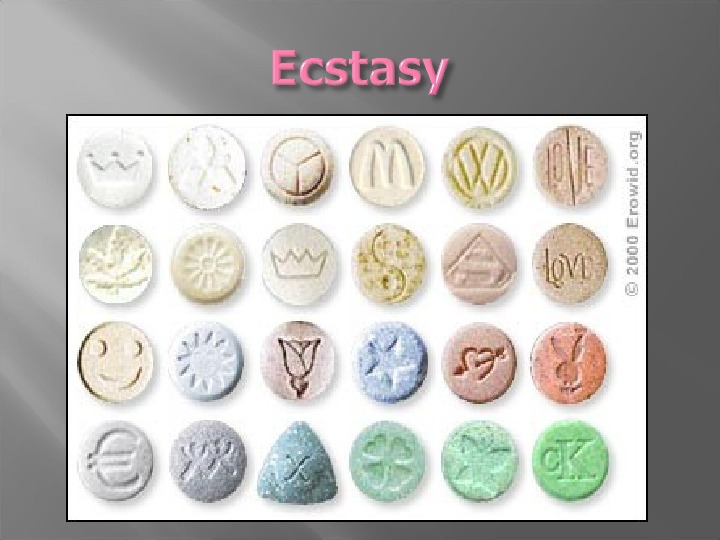
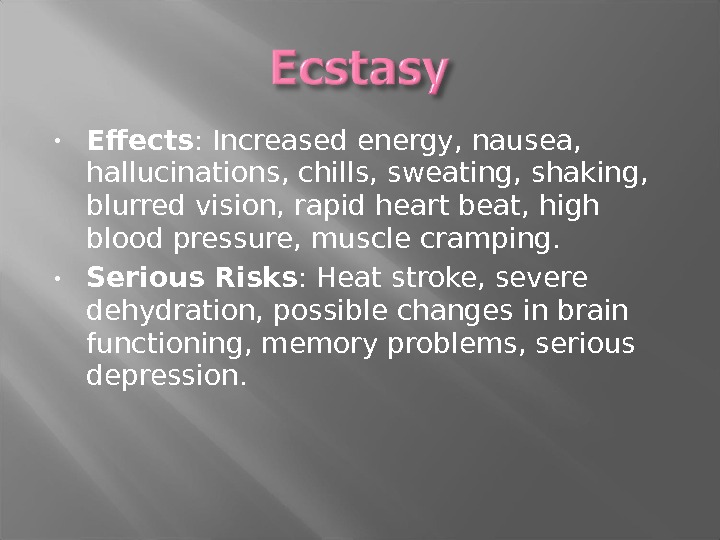

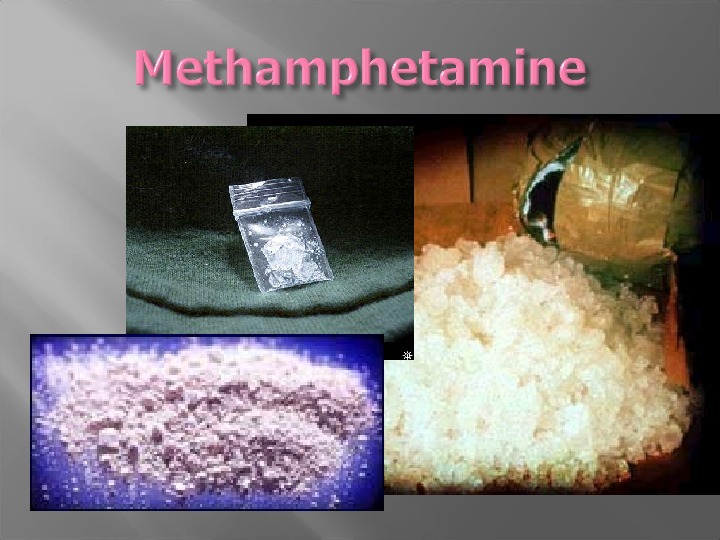
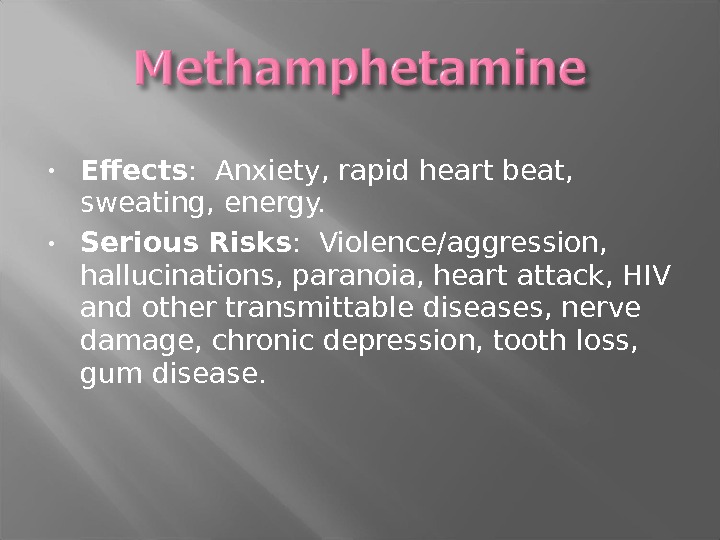
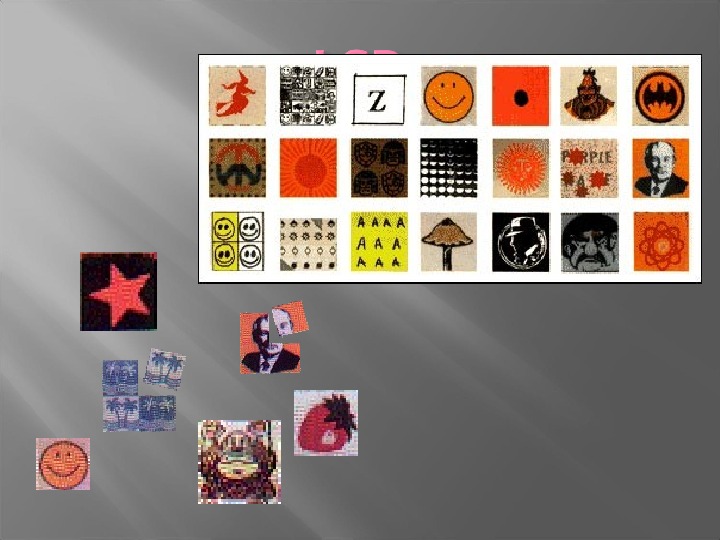

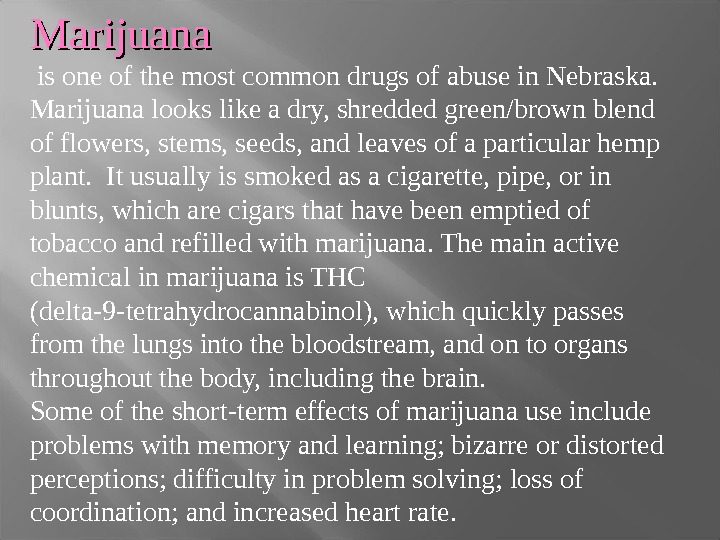
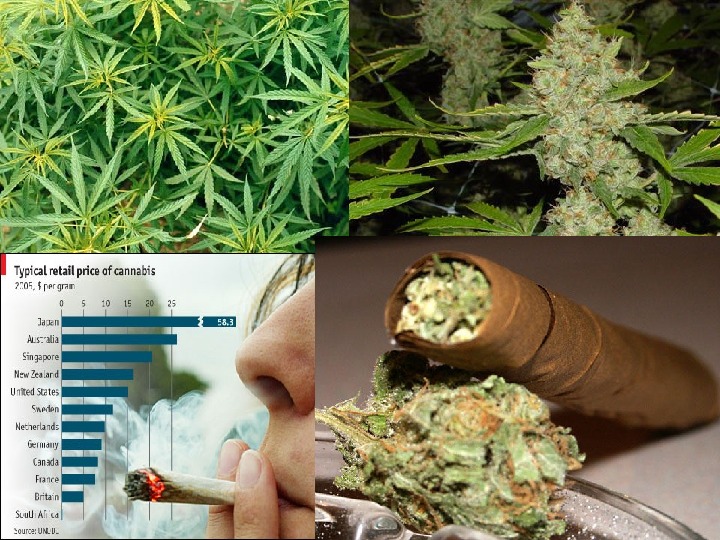
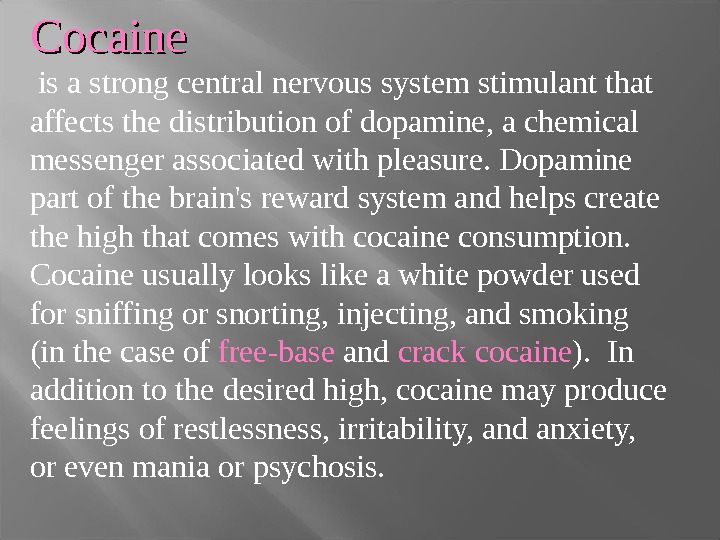
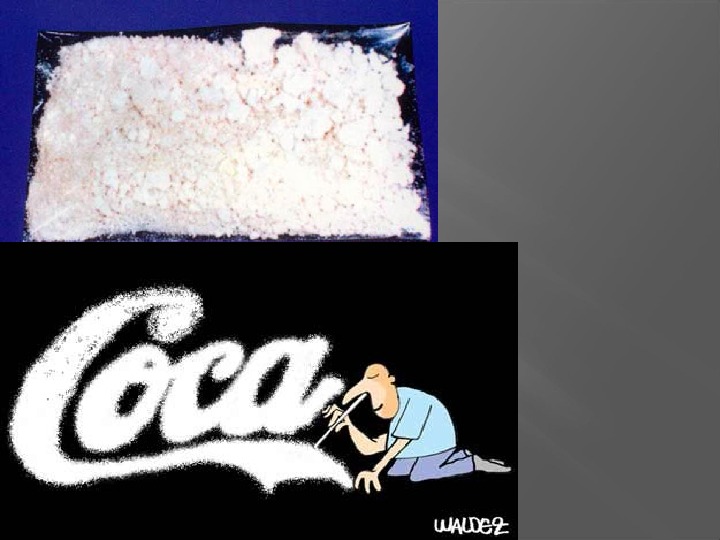


- Размер: 2.3 Mегабайта
- Количество слайдов: 15
Описание презентации What is it and how does it work? по слайдам

 What is it and how does it work? • MDMA (3, 4 -methylenedioxymethamphetamine) • An amphetamine analogue that produces euphoria, feelings of closeness to others and stimulant effects. • Acts as a short term antidepressant by releasing large amounts of Serotonin (a neurotransmitter). Ecstasy
What is it and how does it work? • MDMA (3, 4 -methylenedioxymethamphetamine) • An amphetamine analogue that produces euphoria, feelings of closeness to others and stimulant effects. • Acts as a short term antidepressant by releasing large amounts of Serotonin (a neurotransmitter). Ecstasy

 • Effects : Increased energy, nausea, hallucinations, chills, sweating, shaking, blurred vision, rapid heart beat, high blood pressure, muscle cramping. • Serious Risks : Heat stroke, severe dehydration, possible changes in brain functioning, memory problems, serious depression.
• Effects : Increased energy, nausea, hallucinations, chills, sweating, shaking, blurred vision, rapid heart beat, high blood pressure, muscle cramping. • Serious Risks : Heat stroke, severe dehydration, possible changes in brain functioning, memory problems, serious depression.


 • Effects : Anxiety, rapid heart beat, sweating, energy. • Serious Risks : Violence/aggression, hallucinations, paranoia, heart attack, HIV and other transmittable diseases, nerve damage, chronic depression, tooth loss, gum disease.
• Effects : Anxiety, rapid heart beat, sweating, energy. • Serious Risks : Violence/aggression, hallucinations, paranoia, heart attack, HIV and other transmittable diseases, nerve damage, chronic depression, tooth loss, gum disease.

 • Effects : Dilated pupils, higher body temperature, increased heart rate and blood pressure, sweating, loss of appetite, sleeplessness, dry mouth, and tremors, numbness, weakness, or trembling, nausea, hallucinations, laughing. • Serious Risks : Possible “flashbacks”; poor judgement leading to accidents (crashes, jumping off high places).
• Effects : Dilated pupils, higher body temperature, increased heart rate and blood pressure, sweating, loss of appetite, sleeplessness, dry mouth, and tremors, numbness, weakness, or trembling, nausea, hallucinations, laughing. • Serious Risks : Possible “flashbacks”; poor judgement leading to accidents (crashes, jumping off high places).
 Marijuana is one of the most common drugs of abuse in Nebraska. Marijuana looks like a dry, shredded green/brown blend of flowers, stems, seeds, and leaves of a particular hemp plant. It usually is smoked as a cigarette, pipe, or in blunts, which are cigars that have been emptied of tobacco and refilled with marijuana. The main active chemical in marijuana is THC (delta-9 -tetrahydrocannabinol), which quickly passes from the lungs into the bloodstream, and on to organs throughout the body, including the brain. Some of the short-term effects of marijuana use include problems with memory and learning; bizarre or distorted perceptions; difficulty in problem solving; loss of coordination; and increased heart rate.
Marijuana is one of the most common drugs of abuse in Nebraska. Marijuana looks like a dry, shredded green/brown blend of flowers, stems, seeds, and leaves of a particular hemp plant. It usually is smoked as a cigarette, pipe, or in blunts, which are cigars that have been emptied of tobacco and refilled with marijuana. The main active chemical in marijuana is THC (delta-9 -tetrahydrocannabinol), which quickly passes from the lungs into the bloodstream, and on to organs throughout the body, including the brain. Some of the short-term effects of marijuana use include problems with memory and learning; bizarre or distorted perceptions; difficulty in problem solving; loss of coordination; and increased heart rate.

 Cocaine is a strong central nervous system stimulant that affects the distribution of dopamine, a chemical messenger associated with pleasure. Dopamine part of the brain’s reward system and helps create the high that comes with cocaine consumption. Cocaine usually looks like a white powder used for sniffing or snorting, injecting, and smoking (in the case of free-base and crack cocaine ). In addition to the desired high, cocaine may produce feelings of restlessness, irritability, and anxiety, or even mania or psychosis.
Cocaine is a strong central nervous system stimulant that affects the distribution of dopamine, a chemical messenger associated with pleasure. Dopamine part of the brain’s reward system and helps create the high that comes with cocaine consumption. Cocaine usually looks like a white powder used for sniffing or snorting, injecting, and smoking (in the case of free-base and crack cocaine ). In addition to the desired high, cocaine may produce feelings of restlessness, irritability, and anxiety, or even mania or psychosis.

 • Heroin is a very addictive drug processed from morphine, a substance extracted from the seedpod of the Asian poppy plant. Heroin produces a feeling of euphoria (a «rush») and often a warm flushing of the skin, dry mouth, and heavy feelings in the arms and legs. After the initial euphoria, the user may go into an alternately wakeful and drowsy state. Heroin is the second most frequent cause of drug-related deaths.
• Heroin is a very addictive drug processed from morphine, a substance extracted from the seedpod of the Asian poppy plant. Heroin produces a feeling of euphoria (a «rush») and often a warm flushing of the skin, dry mouth, and heavy feelings in the arms and legs. After the initial euphoria, the user may go into an alternately wakeful and drowsy state. Heroin is the second most frequent cause of drug-related deaths.


